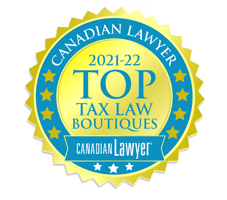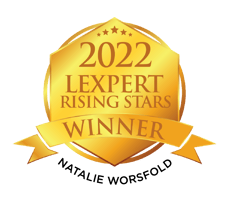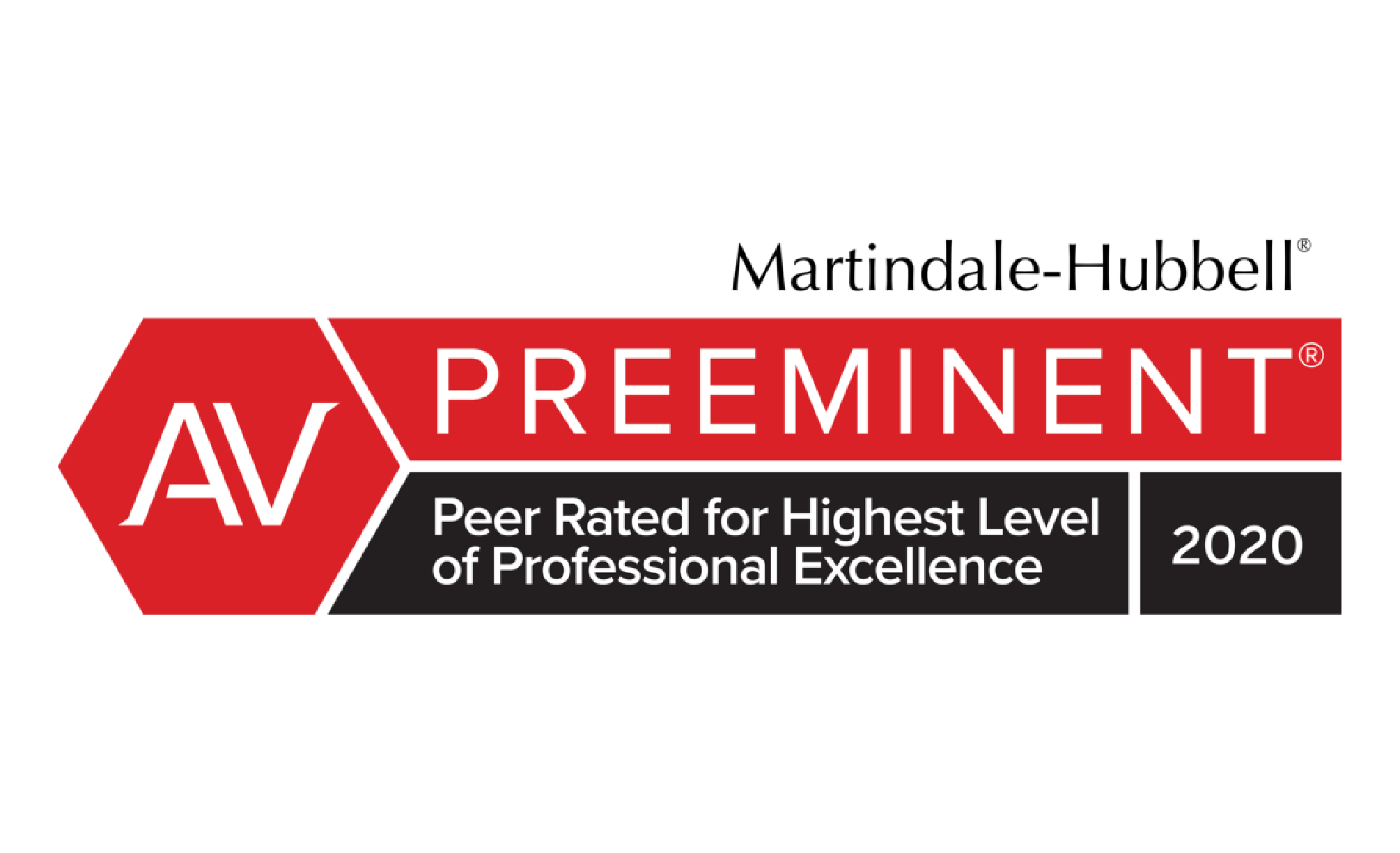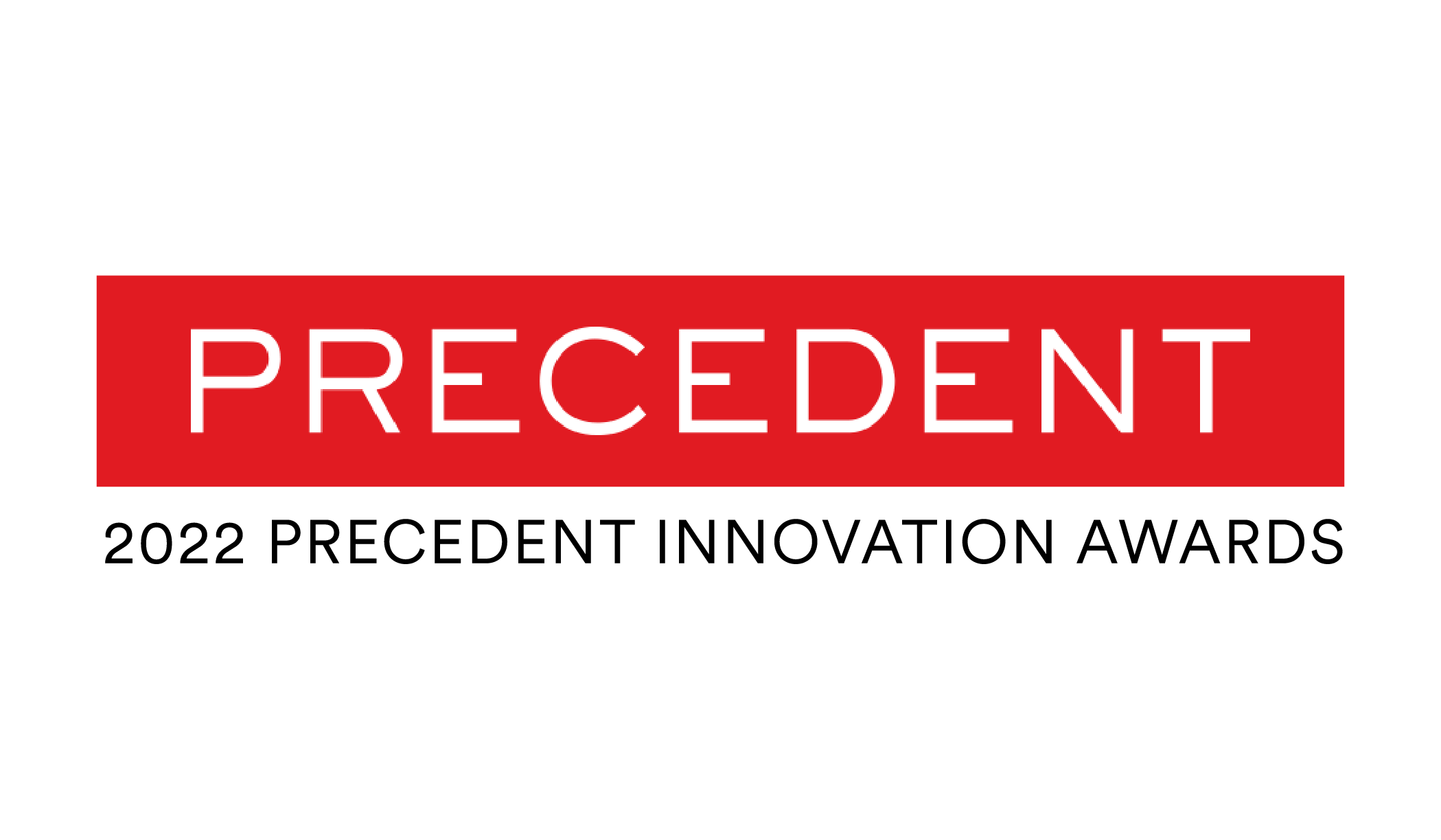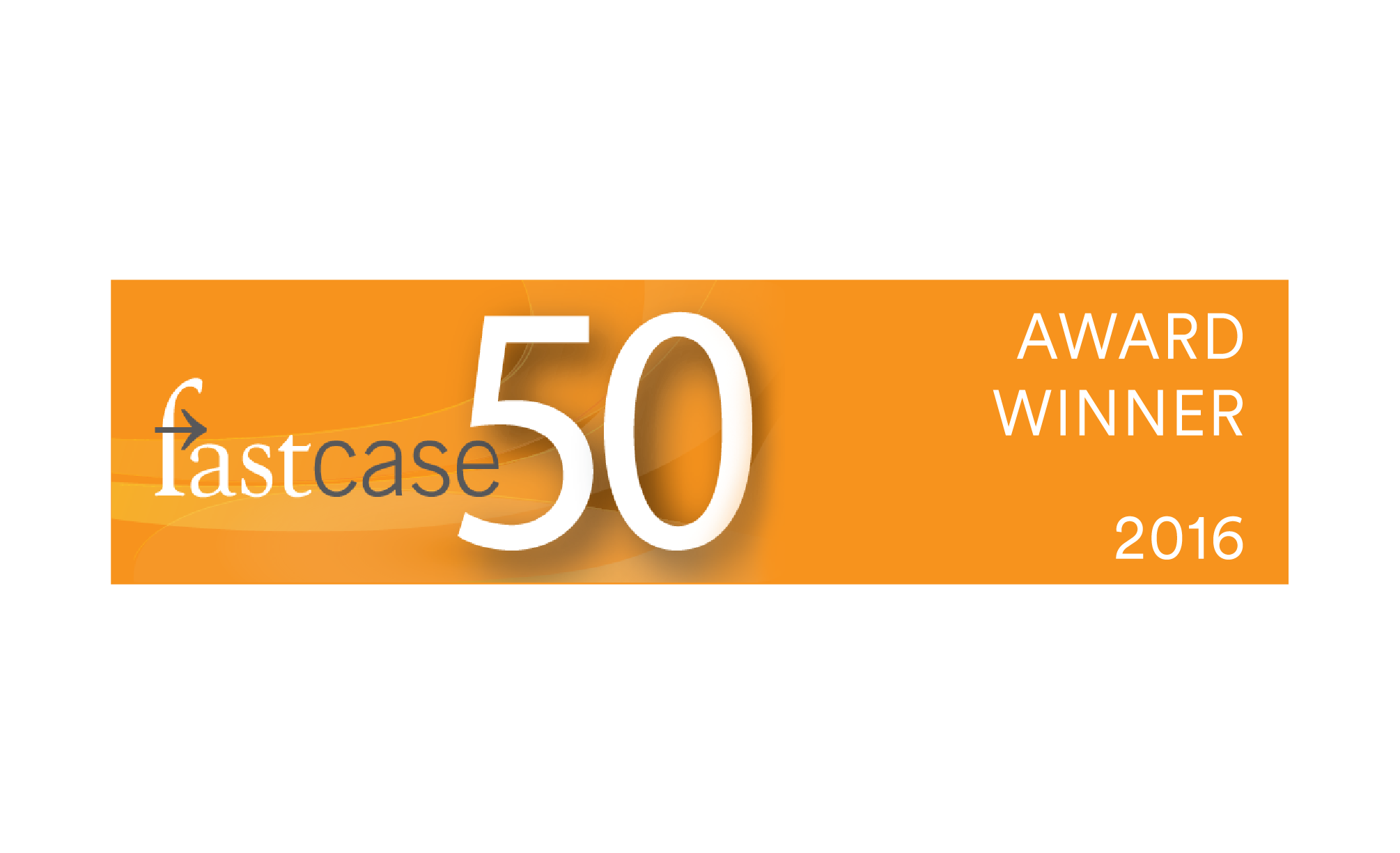
Developing personal relationships and fostering greater understanding of your client's needs are as important as ever in the legal world. In this episode, Natalie and Peter chat with Mark Le Blanc about how the changing dynamic between in-house counsel and external law firms can help lawyers deliver more value and drive change in the legal industry as a whole.
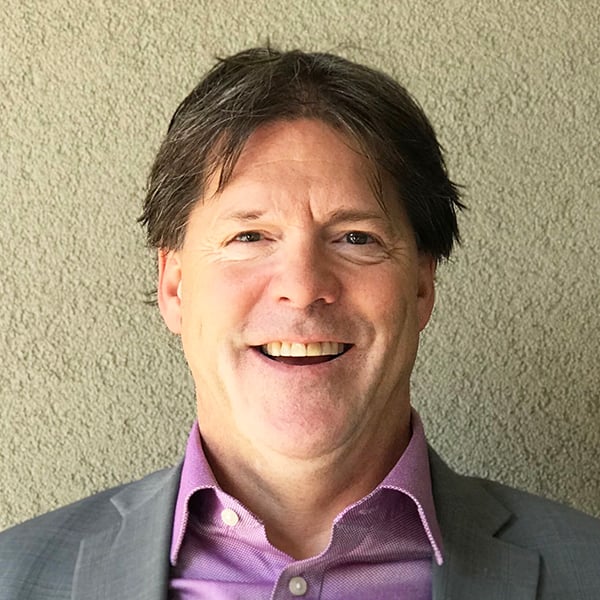
A business minded lawyer with excellent judgement who has built and evolved legal departments and been a key player in transitioning a legacy business into a digital product business. Mark deeply believes that organizational value can be significantly increased from driving legal knowledge and insights deep into the business units of organizations. His experience has taught him that to do this you not only need legal knowledge, insight and judgement, but you need to build relationships and put in place systems and processes that will fully leverage the value in the legal knowledge and keep risk at an acceptable level. He also knows that to succeed in delivering on this value while managing risk requires ongoing effort and attention, particularly in an environment where technology and competition are creating an ever changing landscape. In short, Mark uses his knowledge, judgement and years of experience to generate value from the enormous opportunity created by the evolution of the practice of law as it relates to the businesses he supports.
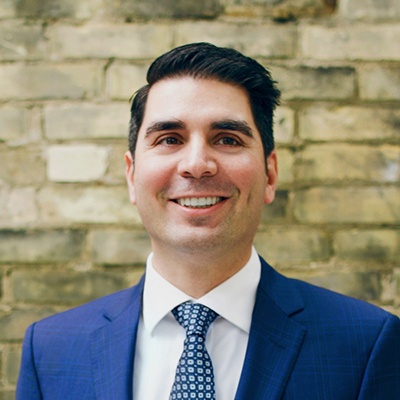
Peter Aprile is a senior lawyer specializing in tax dispute resolution and litigation. His vision as Counter’s founder and his everyday role at the firm are one and the same: to be an agent of change, uncovering opportunities and developing strategies that achieve more than anyone expected. A creative thinker, Peter studies problems from all different angles to find what others have missed. He’s also convinced that he likes winning more than most people.
Different people describe Peter in different ways. At the CRA and the federal Department of Justice, the word relentless comes up quite a lot. Admittedly, so does the word a**hole – but it’s often said with a certain grudging respect, if not affection. Peter’s clients call him a saint. Well, some of them, anyway. His colleagues describe him as empowering and harddriving, but fair. Peter’s friends call him loyal. His wife describes him as a lot to deal with, but worth it. Peter encourages his young daughter and son to call him “The Big Homie,” though with limited success. His mother describes him with the single word mischievous – before going on to complain that he should call more.

Natalie is a tax lawyer who represents individual taxpayers and owner-managed businesses in disputes with the Canada Revenue Agency (CRA). She also successfully challenges CRA decisions denying taxpayer relief and helps facilitate applications under the Voluntary Disclosures Program.
But what you really need to know about Natalie is that she’s a tax litigator with heart. When she takes a case, it’s not out of technical interest – it’s because she cares. And if she believes the government has got something wrong, she won’t stop until it’s been put right. She’s fierce.
Natalie is the co-architect behind many of Counter’s process workflows, software and data analytics systems, as well as our comprehensive knowledgebase (loving named Hank). And when it comes to preparing cases, she’s Counter’s secret weapon – happiest when elbow-deep in evidence, meticulously building creative solutions to seemingly impossible problems. Because the fact is Natalie sees things that other people don’t.
Natalie’s family and friends describe her as loyal, selfless, understanding and fun. They also mention stubborn. To her Counter colleagues she’s a combination of stellar brainpower and contagious enthusiasm who elevates the game of everyone around her.
[0:00] [background music]
Peter Aprile: [0:08] Hi. Welcome to, "Building NewLaw," Canada's first and only CPD accredited podcast. It's hosted by me, Peter Aprile, and my colleague, Natalie Worsfold.
Natalie Worsfold: [0:16] In each episode, we interview lawyers, legal technologists, and other likeminded people at the forefront of new law.
Peter: [0:15] We hope that the podcast connects the new law community, and helps us all learn more about the approaches that are changing the way that we practice law.
Natalie: [0:33] To learn how you can use this podcast to satisfy your law society's CPD requirements, visit our website at countertax.ca/bnlcpd. That's countertax.ca/bnlcpd.
Peter: [0:40] Enjoy the show.
Announcer: [0:41] The Building NewLaw podcast is supported by Counter Tax Lawyers, a new type of tax controversy and litigation law firm. To learn more about Counter, go to countertax.ca.
[1:00] [background music]
Natalie: [1:00] Today we're interviewing Mark Le Blanc. Mark is General Counsel at TVO, which is an educational public service broadcaster here in Ontario. We wanted to talk to Mark about the dynamic between in-house counsel and external law firms, and learn a little bit more about the business perspective on buying legal services.
[1:23] Mark has really great insight into how lawyers can deliver value and some of the different changes that are driving our industry. Here's our interview with Mark.
[1:32] [background music]
Natalie: [1:32] Mark, thank you so much for joining us today. [laughs]
Mark Le Blanc: [1:35] Great. Thanks for having me.
Natalie: [1:42] I just wanted to start off asking if you could give a brief introduction about you and what you do.
Mark: [1:48] I am General Counsel for TVO, the public educational broadcaster for the province of Ontario. We are a legacy broadcaster that has expanded to become an educational-based digital product company. Now we continue to broadcast, but we have many facets to what we do.
[2:10] How did I get there is a bit of a different story. As I said, I am a media lawyer coming out of a more traditional background. I started as an IP practitioner, thought I was going to be a copyright lawyer till I realized there wasn't another copyright law to be done in Canada.
[2:24] [laughter]
Mark: [2:26] Then ended up at CBC. That's where I became a true media lawyer, built those skills out. Then thought I'd go out on my own, realized I liked being in an organization more than just being out on my own.
[2:41] Got to introduce the TVO and a very flat organization without a lot of hierarchy, driven to try and do something truly different. Now, 14 years later, partway through that, about 7 years in, of course, broadcast went off a cliff.
[2:59] Although it's hanging on, it's not the driving force that once was. As a result, I've had to evolve who I am, because our organization had to evolve. We've become, as I say, a legacy broadcaster. We're now a digital product company.
Peter: [3:14] How did you have to evolve, and what did that take?
Mark: [3:17] The first thing I had to do was understand, legally, how digital products were built out and how that changes. My training, like most lawyers, as you try and look at it as a lawyer, but now I was sink far enough along where I said, "OK, but what is that organizations actually going to have to do that's different?"
[3:35] The first thing that became obvious was, with digital products, we're actually in the market we were going to market. We had people in the marketplace, which we'd never really had before. We just offered a product, and it was there.
[3:47] That created a very different environment for me. The clients were different. They were thinking differently. They had different needs. Speed became much more an issue. We started dealing with things like developers, which I'd never had to do before, talking about coding, building, project management, and agile versus waterfall.
[4:07] As you learn about these, you realize, "Well, we should really reconsider how we're delivering our legal services," because this team, these business units, are moving faster, they're fleeter, they're just more agile, and they want very different things from us.
[4:23] I was already evolving, I think, moving from private practice in-house and being much more concerned about my business relationships and fast, good, efficient, smart business advice tied in with legal, but now that became critical.
[4:40] That changed my thinking, and as a result changed how I thought we had to deliver legal services internally.
Peter: [4:47] When I hear you speak, I think to myself, "There's this massive shift that's happened in your organization and in you as well, as you've evolved into your role." Now, when you look into the marketplace, what do you see?
Mark: [5:02] It depends on where you're looking. When I look at the traditional outside legal counsel, I see some evolution, but in corners of organizations and in pockets where they're more fully understanding, I think, the experience of a general counsel and of business, and closer to building out a trusted adviser type relationship as opposed to a traditional GC lawyer relationship.
[5:31] By that, I mean that, as a trust advisor, somebody has a much deeper understanding of our organizational goals and objectives as opposed to just our legal risk management. That's starting to occur.
[5:44] When I look at the younger lawyers of today, I see some that are absolutely locked onto this stuff. They innately get that lawyers are not just lawyers.
[5:56] It seems that they're one step closer to understanding that people actually want them to have intelligence outside of a raw set of legal skills. That t-shaped lawyer becomes a reality.
[6:08] On the other hand, I still talk to a bunch of people who are coming up, and it's like the 1970s. They're still saying, "I want the big corner office on Bay Street." They're very focused on a very narrow corner of the practice of law.
[6:26] To get all the way back to your original question, "Do I see a big change out there in the marketplace?" I'm seeing some, but I don't see enough where I'd say that we're far from a tipping point, in my perspective.
Peter: [6:39] When you talk about you and your organization sitting together determining what the targets are, where the organization wants to go, have you brought in outside counsel or made any presentation to outside counsel to say, "Look, this is where we are. This is where we're going," to give them some context to maybe be either a little bit more proactive or see some of the things that you folks aren't seeing internally?
Mark: [7:02] Yes, I'm not going to get into discussing who exactly, but we've had two instances. One which has been hugely successful, and one which was not.
[7:12] In both instances, I was trying to say, "OK, here's what we're trying to do, and speed is super important. I'd like a greater ability to, when I pick up the phone, there's less background. You're right away, 'Uh-huh, uh-huh, I completely understand where you're going.'"
[7:29] They're almost seeing it faster than you. Both of them were traditional downtown outside counsel relationships.
[7:35] One, it became very specific right away, "Well, how would that work?" What they were really saying was, "How can I bill you differently?"
Natalie: [7:48] [laughs]
Mark: [7:49] It became a discussion about discounts, and then it was a long 10-year relationship, 10-year-plus. I thought there was ample opportunity for looking at different ways to bill us because you have an enormous track record to look at. This isn't a fresh out-of-the-gate relationship.
[8:07] I've done a lot of homework and looked into how we were being charged and what areas of that particular practice where our real expense was coming from. It was a little bit across the board. There was definitely an opportunity there to find some efficiencies, I thought, for both us and the firm.
[8:29] Then, secondly, to look at, "What's the team that you have? How can you give us a better understanding of that because we might be able to have some ideas, too, about how we could better use your team?"
[8:42] There was resistance. By the way, the work product we were getting from both of these firms was excellent. It wasn't a work product issue.
[8:51] It was really trying to get them to turn around and look at it differently. I could not steer this relationship.
[8:57] Now, to be fair, that relationship isn't one that I had built personally right from the ground up. I might've had more control that way, if that was it. I'd say, that one's still a challenge.
[9:09] Another one is an example where we did exact same issue. I remember saying, "Look, constantly it's you, me, the business team." In this instance here, I could say it was with our philanthropy team.
[9:24] They're a team that they're like a sales team. They're constantly thinking, every time you give them an answer, they're immediately spin on it, the sales team is like, "Oh, OK, so then that means, if I can do that," then they have two or three other questions.
[9:40] I was feeling, "Wow, first of all, I'm slow to get through to. Secondly, the advice you're getting, you constantly have secondary questions, which slows it down even more." I said, "We've got to change this."
[9:55] I remember talking to the firm. At the time, they were not terribly open to this idea. I had more control over this relationship. I said, "Let's just pick up the phone. Start talking to a bunch of people in the same area."
[10:09] There were number of firms out there in the charitable space who were experts in that space. One of them said, "I'm totally open for you framing this relationship however you want."
[10:20] I said, "Fantastic," and so we've tried a couple of things, but one of the things that's worked really well is they come in on a routine basis, typically quarterly and then as needed, but they don't meet with me. They talk directly to the philanthropy team.
[10:36] If there is big issues, one or other, the team or the lawyer, will loop me back in. The speed at which that advice occurs is way higher. I know very little about this area, so I'm not involved trying to interpret it. Both sides know much more than I, both the client and the outside counsel.
[10:56] It turned out to be a powerful tool just to drive good, smart, outside legal advice right to the team. I wasn't looking to reinvent the wheel. I was just looking to get quick, accurate advice to the business team very quickly. It's amazing what just putting two people together would do. My team internally, they love me, and oh, my God.
[11:20] [laughter]
Peter: [11:20] It's perfect.
Mark: [11:21] Yeah. I didn't do much.
Peter: [11:21] Yeah, that's perfect. Tell me I'm right if I interpret it this way. The conversation -- and even the one that failed -- the conversation isn't about discounts, it's about getting external alignment and framing the relationship in a way that works for you. It's not the couple bucks that you're saving on legal that's the impetus behind this.
[11:45] It's, listen, we just want to get us all in a position to get what we actually need in the way that we need it. We'll talk about the billing practices and how all that comes together, but it's that relationship and like you're pointing to, that agility or that direct connection with the philanthropy team that you're really looking for. That's the real value there.
Mark: [12:05] It absolutely is. We talked about billing, but if the billing relationship can be second, because that can be solved. You can figure that out. The moment you get a more streamlined path to good legal/business advice coming in in an area of expertise that you need...Like in these areas that I was talking about, we don't have that skill set internally.
[12:32] That's why we're going outside. It's fantastic to get it, but once you get that on a level where it's so comfortable as though it's down the hall, and it's so in-depth as though they know all your players, and the issues, and objectives that you're reaching towards, then how you bill for it is...Everybody's way more comfortable for it. Because nobody's thinking, "Oh, my God. There is a goldmine if there is not."
[12:57] They're thinking, "Wow. How can we possibly get our heads around what this is?" Once you figure it out and know what it is, then billing for it becomes relatively easy, and you can work out models that will work in both parties' best interests.
Peter: [13:13] When you say how you bill for it, you also in some sense mean how much you bill for it as well, correct?
Mark: [13:17] Yes, because it's a value proposition.
Peter: [13:19] Yes.
Natalie: [13:20] Absolutely.
Mark: [13:20] I know everybody's going to say this who's in my position in-house. We never care how long it's going to take. Well, we care how long it takes in terms of getting the answer back to us. I don't care how many hours it took you. I really care on the business advice, like how quick it comes to us and how accurate it is. It's a relationship and it's a culture.
[13:44] If you get us and we're well-aligned to you, the comfort you have on giving your legal advice becomes very, very high. I'll just give an example of how that makes a difference in the philanthropy situation.
[13:59] If you're not comfortable with our culture and how we move and operate, you're not going to be very comfortable as a lawyer sitting down in a room with non-lawyers who are drifting towards salespeople and giving them advice.
[14:12] Because your fear would be, I am so exposed here, I'm just a cheap insurer now for these people to go out and make whatever decisions they want. If culturally you're not fitting there, then you're going to have a very difficult time either, A, as a lawyer opening up, or B, as the organization trying to get a lawyer who will fit with you.
[14:33] That culture becomes very important where the trust is high, and they know where you're going with advice, and what you're doing with it and how you organizationally will behave. Then that advice can flow fairly freely. It's super important to have that cultural fit and that trust.
Natalie: [14:51] It's such a mystery to me why this isn't commonplace. I hear what you're saying, and when I think about the role of a lawyer particularly as the trusted adviser type of idea, I can't fathom how you could give good advice without knowing your client, understanding their business needs, their risk tolerance.
[15:09] The advice you give has to be tailored to that business, and you have to have an understanding of that business to give good advice.
Mark: [15:16] Absolutely. That and you can even go further, and that is, if you want to get even deeper level advice and you want somebody who's even forward-thinking for you, then it's very important to know the organization, but even better is if you actually get to know the person that you're dealing with.
[15:33] You're not going to know the entire team in an outside counsel relationship, but if you have a strong relationship with that lawyer or that lawyer has a strong relationship with you as the GC, that creates an enormous advantage because there is no doubt that if you know someone, you're going to be way more concerned for their success.
[15:55] These seem obvious and trite things to say, and not I'm talking, you don't have to vacation with them, but it's great if you go and have a coffee with them or a drink.
[16:05] [laughter]
Mark: [16:05] I get to understand who they are, where they're coming from, and what's motivating them. The other thing that becomes obvious to me is that culture doesn't come out of nowhere. It comes from the people.
[16:17] Once you start to know those people, this group of people that are all around a table driving an organization, they have a golden thread through them that's driving them to the organizational culture. It's not always apparent because some people might seem like odd fits around the table, but just be patient and look, and you'll see it. You need to get to know them.
[16:38] Once you know them, it just makes it much easier. A really easy example is if you know someone's working with an organization that's moving very fast and perhaps they're their general counsel and they often have nagging issues about the speed that they're moving with.
[16:54] Well, the greater you get to know that person, you may find, in fact, that they have that nagging doubt or that challenge, either because of their personality or their training. Let's say that it's their training, and in fact, their personality is one that makes them drive a little faster than they're comfortable with.
[17:13] Knowing that is important because then you start to know that this person's constantly restraining themselves because that's their job. In fact, they're quite comfortable with going fast. You just need to help them get there so they can check the box off. Knowing that is super helpful and a very powerful tool. I describe perhaps myself a little bit there.
[17:37] When outside counsel can get me past some of the work challenges I may have, I'm much more comfortable to move with them. If they can know that about me, that can be a powerful tool they can use to help me.
Peter: [17:50] The idea of having a coffee without any specific purpose, or without any underlying motivation other than, "Hey, let me sit with Mark. Let me just listen and learn, in terms of who he is," and then, I guess, as another step in that, who the organization is.
[18:08] Listen for that context as opposed to thinking, "OK, how can I generate another file? How can directly expand my business with TVO?"
[18:15] What have you seen external lawyers do that has been effective to learn you or your organization?
Mark: [18:23] One of the things that I find is really effective though with outside counsel is particularly where they have a unique expertise, they more they talk about that. These things are social media's powerful tool for this -- blogs, podcasts.
[18:36] [laughter]
Mark: [18:36] I'm not just tooting your horn here. These are super powerful tools because what they do is they allow your voice and your area of expertise, but your voice, to come out, which is a little bit different than your expertise. Then, when you look, you're already partway there in terms of understanding what the motivation of that lawyer or that firm might be.
[19:01] That's super helpful. This is obviously one extreme. Even something so simple as a LinkedIn account, keep those up to date.
[19:14] Have a voice. Be known for something. The moment we reach out, if that voice aligns with what you're looking for, then you're already partway there. It doesn't mean you're going to engage them, but it helps enormously.
[19:29] The usual, in terms of knowing the client, this isn't complicated stuff, again. It's, one, you can get to know me before you meet me because I do have a voice on LinkedIn. I do have a presence through social media.
[19:42] If you're coming to talk to me, and you don't know that about me, I'm always surprised because I'm not completely known everywhere. It's not hard, if you want, to find out what my voice is. It's there.
[20:00] A big part of it is, god, Google will get you partway to figuring some of the stuff out. It's not terribly complicated.
[20:07] Obviously, that next stage takes a little more time and effort. That's the coffee and drinks, or whatever it is that you're going to use to get in touch with this individual.
Peter: [20:16] One of the questions, one of my favorite questions, that we ask in interviews is, "What is the most unique thing you did to learn about us?" People look at me stunned. Equally, I'm stunned back at them.
[20:30] [laughter]
Peter: [20:30] I think to myself, "This isn't complicated." It is all online. Did you not do a lot of digging?
[20:36] Of course, this is the preparation that you would need and that any reasonable person would expect if you're trying to form a relationship and work together.
Mark: [20:45] It's about effort. It's about having that interest, deeper than, "Hey, I just want to work with TVO." I don't know how it gets missed.
Natalie: [20:51] I don't know. I don't get this.
Peter: [20:54] Because that's what you're looking for in counsel. You're looking for people who are curious because they're the ones that are going to dig deeper into organizations. As you were saying earlier, they're the ones that might see some of the angles that you don't see.
Mark: [21:05] Absolutely.
Peter: [21:06] Without that curiosity, they're not going to get there.
Mark: [21:10] There's myself and one other lawyer in the organization. It's two lawyers running all the legal services for this organization. That takes no genius to determine we have a ton of gaps.
[21:25] [laughter]
Mark: [21:25] You need to find them. I thought the charitable law one was an obvious one because, if you look at our organization, it takes nothing to go, "Wow, these guys are 60 percent government funded. 40 percent's coming from revenue."
"[21:39] They're a charity. They must getting a good chunk of their revenue side from charitable resources. Well, they don't look like they're experts in that area of law to me."
[21:53] If I'm a lawyer out there, and I'm looking for relationships, that'd be one of the first things that I'd do. "Wow, this is a pretty important to you guys. If you lose that status, that would be horrible, or if you don't achieve your goals there, that would probably have a big impact on your revenue."
[22:08] Both those things are going to get my attention right away. Those are places where it's pretty easy to spot a need for us. If you're looking to try and understand about an organization, it's generally not that difficult to understand what's the top three or four movers are going to be for them, and then ask.
Peter: [22:27] Then, layering that on. If I have those ideas of what this group might need, and then I layer that on with the idea of, "Hey, I've seen and heard Mark speak, and he's not speaking as an expert in these areas." Then it becomes paint by numbers at that point.
Mark: [22:47] It absolutely does. We're so appreciative when we can get that guidance. These aren't things that we could use. We're in need of them.
[22:59] There are instances, too, where I'm not seeing everything. Maybe I'm blind to a particular exposure we might have. If somebody can come in and present that to me, that's yet another opportunity.
[23:10] I'm rarely approached by a lawyer who says, "You know, I've been looking at your business, and there's a couple of things you guys do. I'm perplexed." Ask a question.
[23:21] We may say, "This is why we do it." They could be exposing me to an area where we might need guidance that we don't have.
[23:27] As opposed to sometimes, and, again, getting back to relationships, if you're out chatting with somebody over a coffee, one of the things that's really good is that, if that person coming to you has an open mind and is there, to your point, not to sell, but to listen and say, "Tell me about your business," or, "Tell me about this part of your business," and then just listen, you're able to hear and pick up on things very quickly.
[23:52] Then they can start drilling down based on their knowledge. Asking, "What are your issues? What is it that keeps you up at night? What are the things you're worried about?" Organizations know that. Those things are top of their mind.
[24:07] We need far more help then we're able to either get or afford.
Peter: [24:12] Or identify on your own.
Mark: [24:14] Absolutely.
Peter: [24:15] When I hear you speak, I think to myself, "Is there a cultural expectation that the client will tell them what they need?" as opposed to being proactive and identifying that.
[24:26] You come in, and you say, "Tell me what advice you're looking for, and then I'll speak to that," as opposed to what you're putting your finger on, or are interested in, which is somebody that comes to you and says, "I'll help you with identify those things."
Mark: [24:38] You're correct. Some of that is because of our training. As a lawyer, you're a subject matter expert. At least I'm thinking of my history, you come to the table, and you're like, "I do these five things. Here they are. Are any of them of interest to you?" which is such an odd approach.
[24:59] Whereas I may or may not need those, or I may not even understand what some of those things are or how they can help me.
Natalie: [25:06] I really enjoyed your comment earlier about, "Are these just expensive insurers?" I wonder if some of that echoes in a lawyer not wanting to come and say, "Hey, I can see some other areas where you might need some help," because then it's like they're taking on responsibility for everything that you do.
[25:22] Whereas lawyers are very much like, "Hey, you asked me to do this, so I'm responsible for this. I'm not going anywhere else in case you then sue me."
Mark: [25:31] Yeah, I can understand that. That has to change. I don't have legal problems anymore. I have business problems. They'll have legal aspects to them. Sometimes, that legal aspect is significant. Other times, it's small.
[25:48] It's intertwined with the business challenge. If I can't walk in and describe the business problem, then the legal advice, if I have to pull it apart and pull out the legal question in this, it's exhausting. It narrows the effectiveness of the advice I can get in return.
[26:07] Lawyers are bright, smart people. They talk to so many clients. When I go outside, I'm talking to lawyers that deal with things every day that I see once a year.
[26:19] They know way more about relationships and challenges with so many businesses. I've got to find a way to tap into that.
Peter: [26:27] You might be narrowing the legal problem the wrong way, especially if you're not an expert.
Mark: [26:32] Absolutely.
Peter: [26:33] If you don't talk about the business challenge and you focus in on the legal challenge, because of who your audience is in that moment, you might miss something or be a disservice to your organization as well, inadvertently, of course, because you're not an expert in that field. Then you're not getting the full spectrum of that person's expertise.
Mark: [26:48] Absolutely, that's so true.
Natalie: [26:50] I hear so many parallels with product design. It's like, if you build a product based on what you think is the right solution, you'll always fail. You have to go to the needs, the wants, and everything else.
Peter: [27:00] Of your user.
Natalie: [27:01] Always, always, of your user.
Peter: [27:04] When I think about this, and when you both raise the idea of lawyers opening themselves up to exposure and things like that, I don't know how much I've said this out loud here.
[27:14] I've decided I'm going to go first in every instance now. I am going to put, even if you feel that little bit of exposure point, and, again, you were talking earlier, which I thought was a powerful point that I want to emphasize, the idea of having the relationship makes me going first or maybe having a little bit more exposure than I would normally be comfortable with fall to the wayside.
[27:34] What I'm finding is the more you go first, and the more you worry about being aligned with your client or getting your client to where he or she needs to go, the more you realize that exposure or that fear to that exposure isn't real.
Mark: [27:48] We perceive that risk to be there, so it's there.
Peter: [27:51] Right.
Mark: [27:52] Then we guard against that.
Peter: [27:53] To such an extreme now.
Natalie: [27:55] We hide behind it, I guess. It's a convenient barrier for a lot of people.
Mark: [28:00] That we've built.
Peter: [28:02] How did we get that?
Mark: [28:03] I don't know.
Natalie: [28:04] It doesn't matter. How do we get over it?
Peter: [28:06] Yeah, I guess.
Natalie: [28:06] That's the only question.
Mark: [28:07] People change their way of thinking. Every time you meet somebody else, who's driving forward with this fresh new perspective on how to tear down these walls, for example, it's super powerful and helpful.
Peter: [28:22] That's a perfect note to end on. Thank you so, so much.
Mark: [28:24] Excellent. Thank you.
[28:25] [music]
Natalie: [28:25] I absolutely love talking to Mark. He's one of the smartest and brightest people in our industry, certainly in this city. It's just I get really good insight every time I speak to him.
Peter: [28:49] We sound like we gush over people. I want to hang out with Mark all the time.
Natalie: [28:53] [laughs]
Peter: [28:53] He's so smart. He's so grounded. He has such good perspective. I'm hoping that a lot of the insights that Mark was willing to share are picked up from counsel that works with general counsel because there's a lot of good stuff there that they can use to have better relationships with GCs.
[29:13] What he was asking for, or what he said he would value, as a general counsel, is applicable to every general counsel and every company out there. I really do hope that episode provides value for, and leads to some action by, the people who are listening.
Natalie: [29:32] It's valuable no matter who your client is, too. Just because a company doesn't have a GC, doesn't mean they don't think this way and feel this way.
[29:39] If they're out hiring a lawyer, the business owner wants to have that relationship and wants their external lawyer to have the same amount of insight, care, and consideration about the business, whether or not there's a GC.
[29:53] Do you know what I mean?
Peter: [29:56] Yeah, I thought, when he talked about, he spoke about, his evolution as a lawyer and that shift as he went from a traditional practice to inside TVO and understanding that idea that he spoke about, which is that he doesn't have legal problems. He has business problems with legal elements to them. That was really valuable and interesting.
[30:18] What he's asking for, or what underlies a lot of things that he said was, the idea that lawyers need to evolve in their interactions with GCs as well. Even that subtle thinking that we talked about the idea that he wasn't looking for discounts as a general counsel, and what he's really driving towards is alignment and a deeper relationship.
[30:42] I think that, if outside counsel approach general counsel with that lens, it might lead to more alignment, better communication, and better solutions for the general counsel that these outside counsel are seeking to serve.
Natalie: [30:57] When he's saying, "I have business problems, not necessarily legal problems." This triggered me in a way...We've talked about this before, where lawyers tend to stop short on giving advice.
[31:09] They'll go research the legal problem, they'll present all of these different options, but they miss that step where then looking at a client-specific situation, helping them understand which is the best for them and which is closest to the outcome they're trying to get to.
[31:23] I felt like a lot of what Mark was saying has hit on that, "Just go that extra 10 percent when you give your advice, and you'll actually provide so much more value."
Peter: [31:34] This is doing good work. Just do good work.
[31:38] [background music]
Natalie: [31:38] For this episode show notes and transcript, and how to satisfy your law society CPD requirements, please visit our website at buildingnewlaw.ca. We'd love to hear from you. If you have any feedback, feel free to send an email to info@buildingnewlaw.ca, or come and find us on Twitter @buildingnewlaw.
[32:01] Don't forget to subscribe on iTunes, our website, or wherever else you get your podcasts.
Announcer: [32:07] Thanks for listening to the "Building NewLaw Podcast," brought to you by Counter Tax Lawyers. To learn more about Counter, go to countertax.ca.
[32:17] [music]
Lawyers that have completed the S04E05 BNL CPD can claim a 30 minute Professionalism CPD credit.
- To access the S04E05 verification examination click this link.

.jpg?width=120&name=Counter%20Tax%20Litigators%20Logo%20Stacked%20(MidnightBlue%20on%20White).jpg)


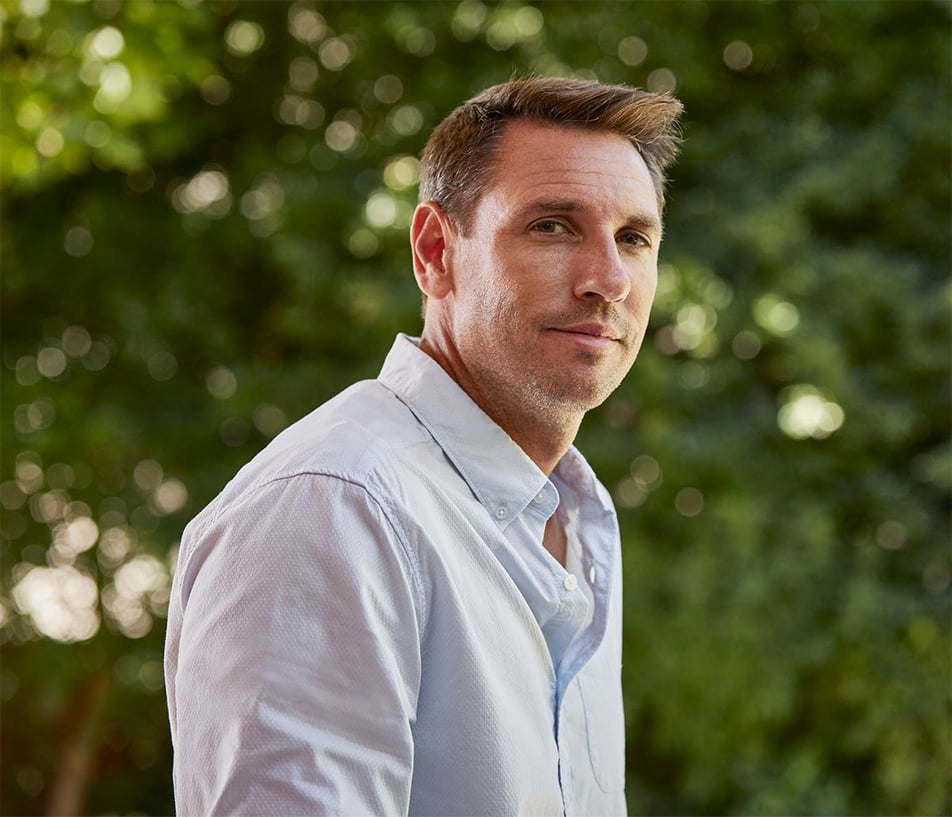

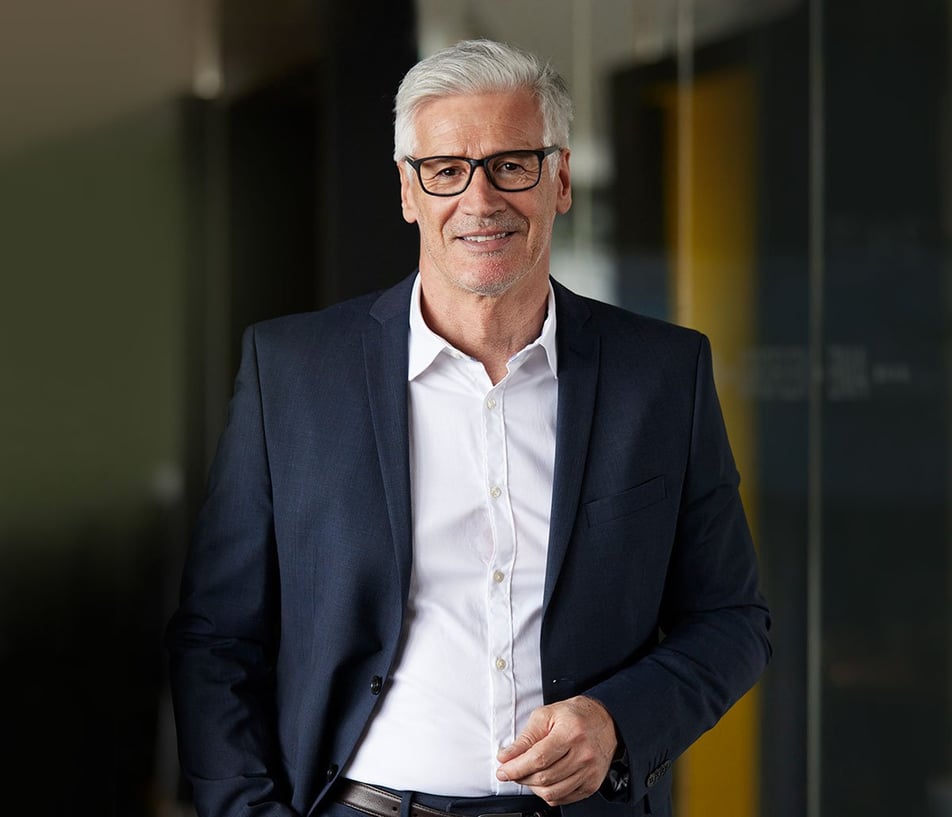
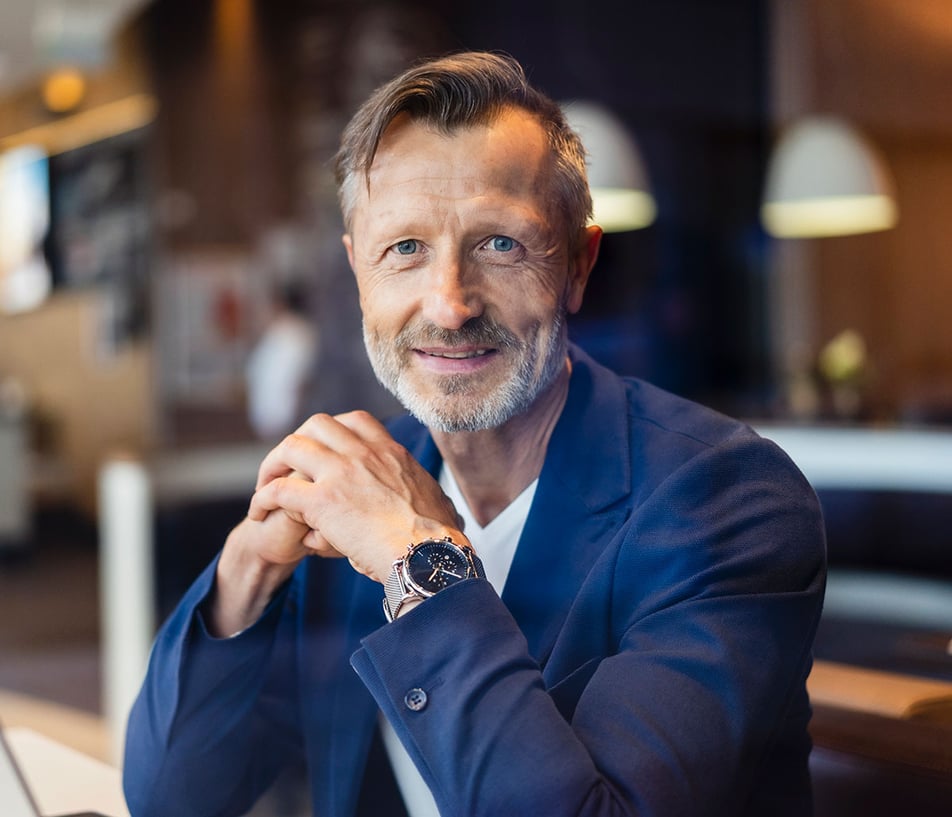
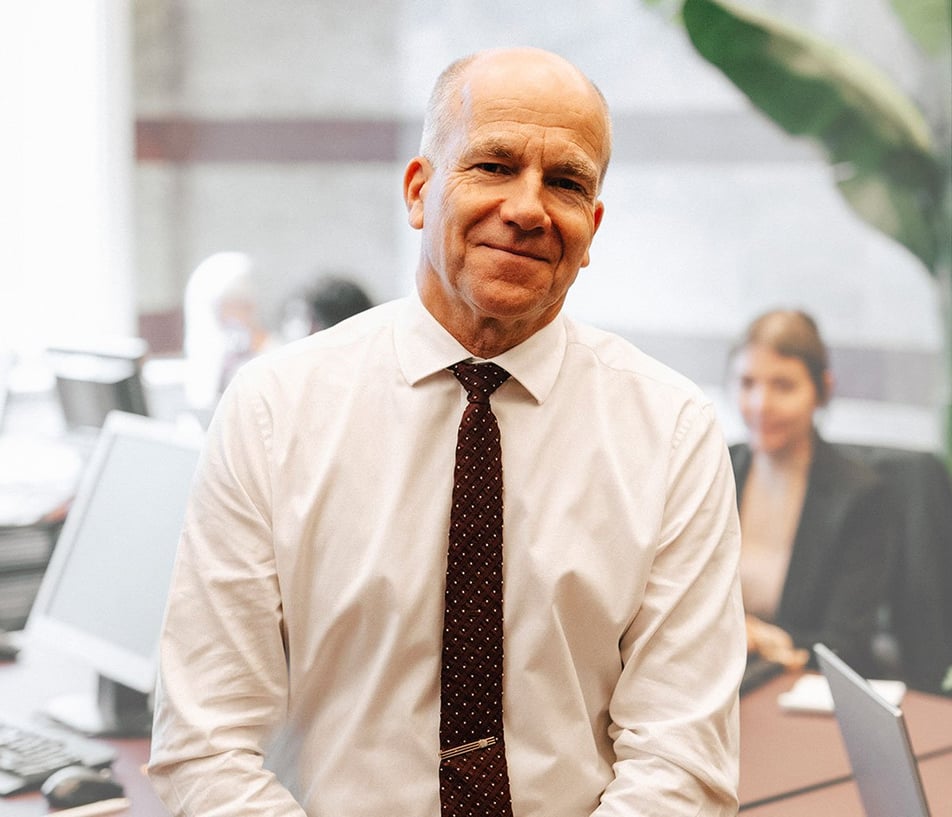
.png?width=400&height=400&name=CT-How_Can_We_Help-22_july_NewGraphic_b(small).png)

.png?width=1386&height=1224&name=2025%20Legal500%20Elite%20Boutique%20Award%20(Badge).png)
.png?width=1386&height=1224&name=ITR%20Finalist%20Practice%20Leader%20of%20Year%20Peter%20Aprile%202024%20(Badge).png)
.png?width=1386&height=1224&name=2025%20Legal500%20Leading%20Firm%20Client%20Satisfaction%20Award%20(Badge).png)
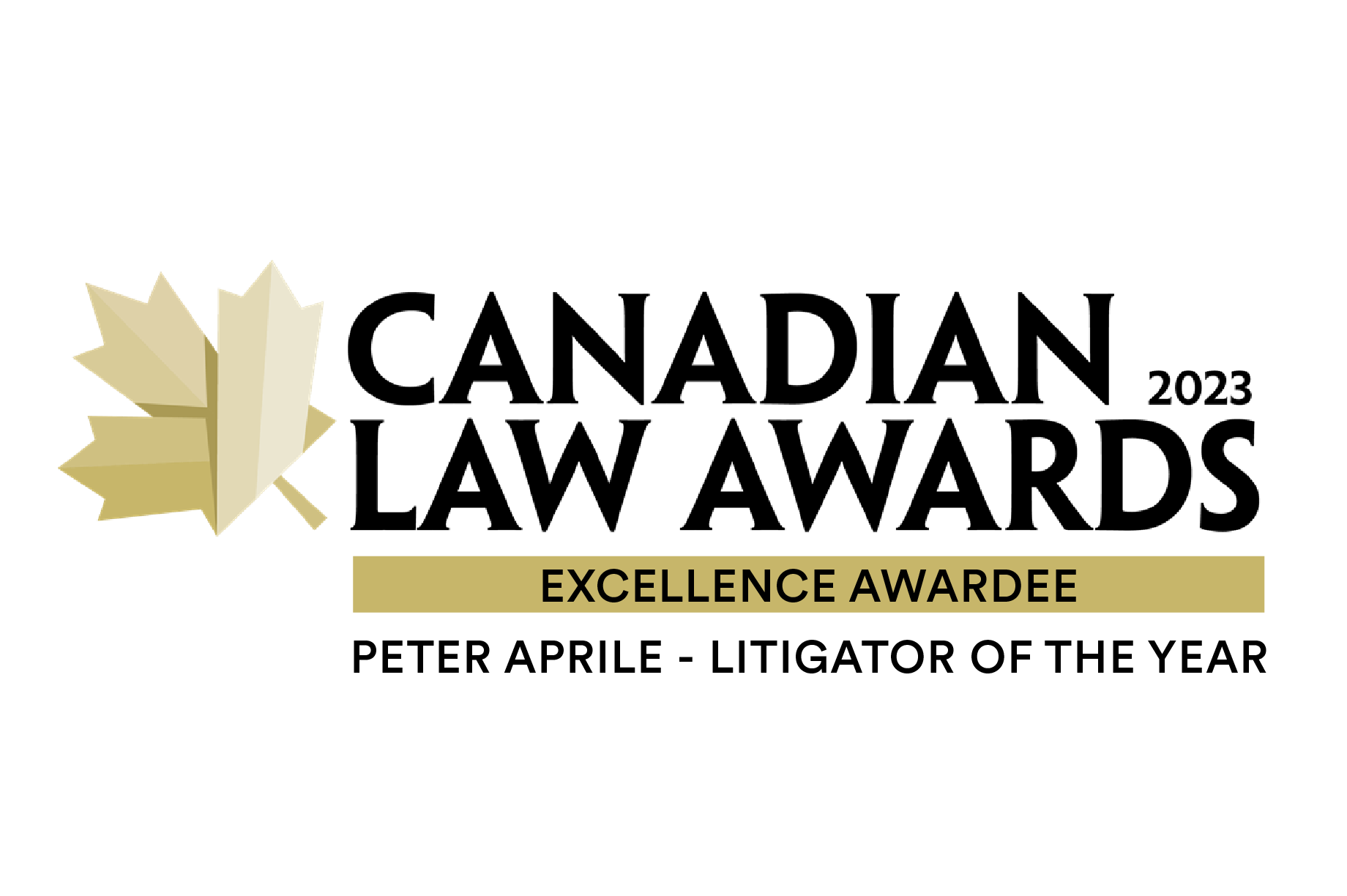
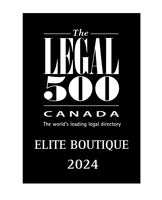

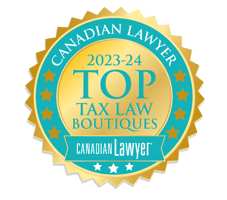
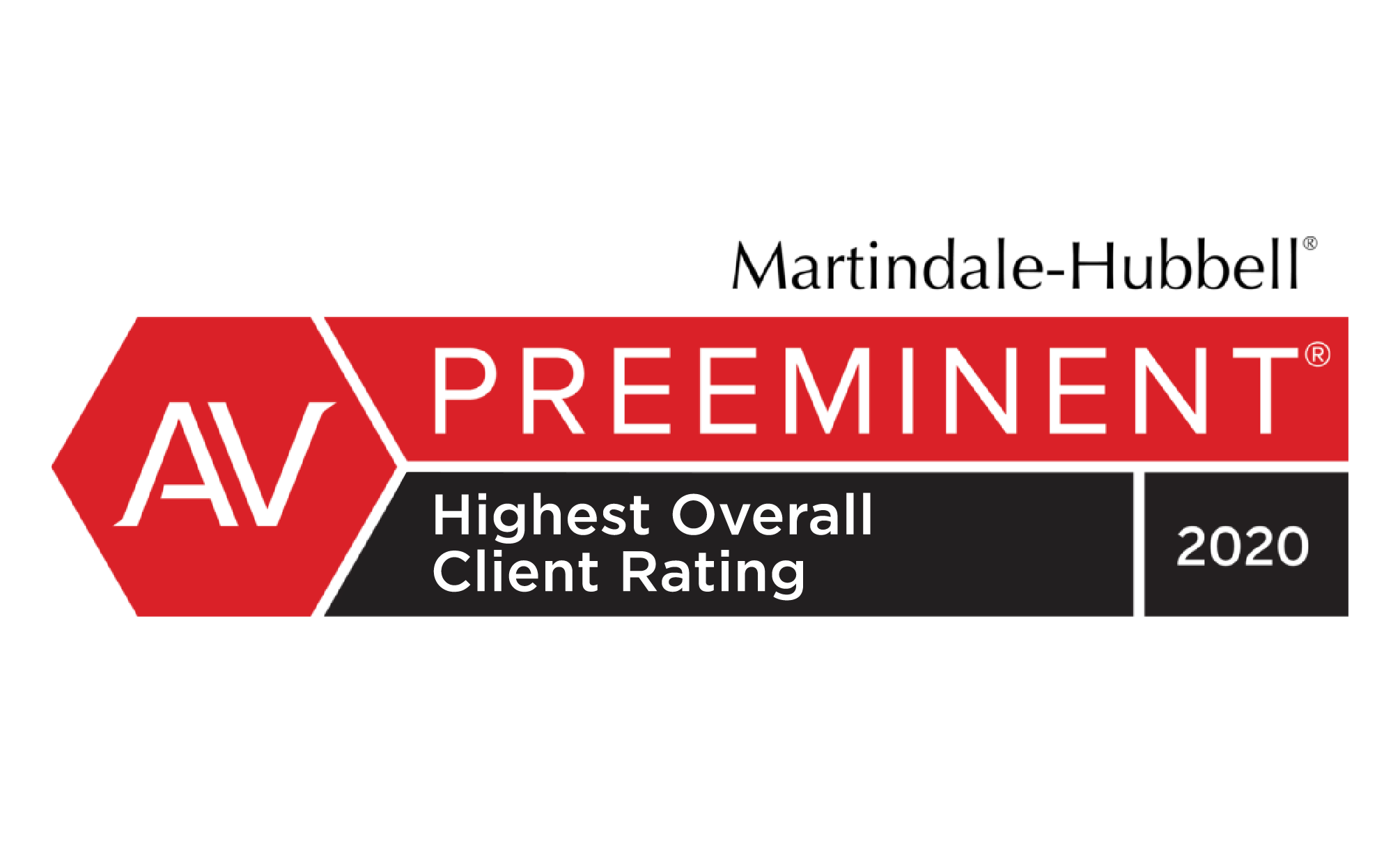
.png?width=1386&height=1224&name=ITR%20Tax%20Innovator%20Finalist%202024%20Award%20(Badge).png)
